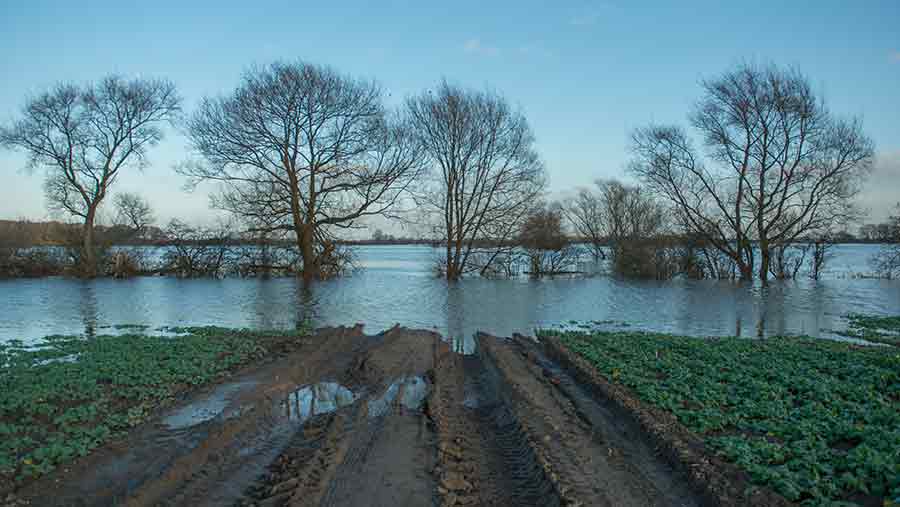Survey suggests farmer support for flood payment plan
 © Charlotte Graham/REX Shutterstock
© Charlotte Graham/REX Shutterstock A majority of farmers are in favour of the idea of producers being paid to accept floodwater on their land to avoid flooding in more populated areas, according to a Farmers Weekly survey.
The idea of paying farms to “store” floodwater is not new, but it has attracted the headlines in recent days in the wake of the devastating flooding in the north of England and Scotland.
The ideas was given fresh momentum after it was put forward by Tiverton MP Neil Parish, chairman of the environment, food and rural affairs (Efra) select committee , as he chaired a hearing on the flooding crisis in the House of Commons last week.
See also: Charity pays £1,000/day to ‘desperate’ flood hit farmers
In a bid to gauge farmer opinion on the subject of flooding, an online survey of Farmers Weekly readers was carried out on the magazine’s website over 11 and 12 January 2016.
Where flood-hit farmers can get help
Farmers in northern England, Scotland and North Wales can apply to a range of organisations for a range of emotional, financial and practical support to help them deal with the aftermath of the floods. See our guide to which organisations are offering what services and how to get in touch with them.
It found 60% of the 136 respondents supported the idea of paying farmers to take floodwater, while 43% said if a voluntary scheme was introduced along these lines they would be keen to take part.
However, it was not without its opponents, as one-quarter of respondents said they disagreed with the idea, while 15% said they were neutral on the issue.
The survey found 70% of respondents felt the farming industry had been unfairly blamed for contributing to the problem of flooding and the same number said they thought farmland should be given greater protection.
And 40% said they were worried about the prospect of all or part of their land being flooded during the next 12 months.
The government has recently announced it will allow farmers to dredge ditches and watercourses running through their land to reduce flooding incidents and 76% of respondents said they thought this would help.
Yet 42% also agreed further dredging might increase the risks of flooding problems further downstream.
Planting trees in the uplands to slow the flow of water from the hills is another of the ideas put forward in recent weeks as a possible solution to the flooding issue.
Environmentalist and journalist George Monbiot has been particularly vocal about the idea, claiming that growing trees significantly increase the amount of water that percolates into the ground.
Out of the respondents to the Farmers Weekly survey, 51% said they were in favour of planting more trees, 30% were neutral and 18% said they disagreed.
Where there was almost unanimous agreement among farmers (99%) was on the view that too many homes have been built in unsuitable parts of the country, making flooding inevitable.
At the Efra hearing, Environment Agency officials admitted that while they nearly always objected to proposed developments in areas where flooding was a possibility, an estimated 13% of new housing developments were being built on a floodplain.
